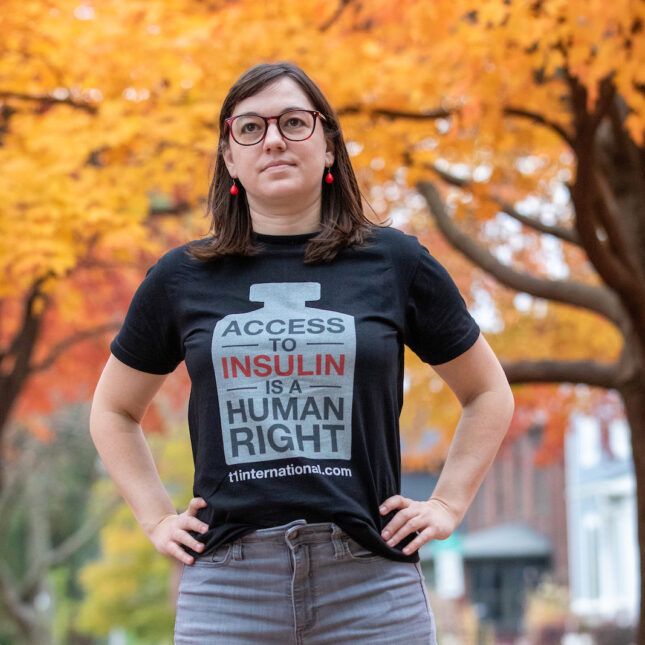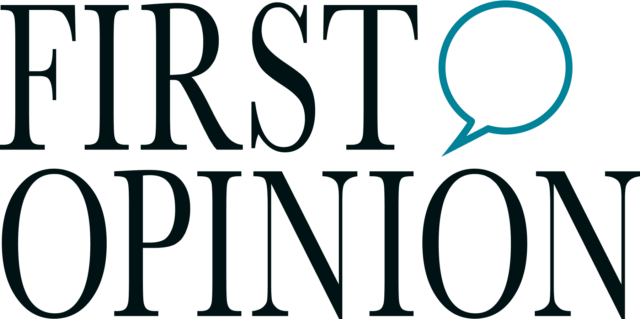
In 2013, I sat down at my computer and secured the URL t1international.com. I wanted a place where I could collect and share everything I was learning about the global insulin price crisis. I was only 25 years old, and I had already been living with type 1 diabetes for more than two decades. I had struggled with the ups and downs of high and low blood sugars, been hospitalized multiple times, and faced wildly high costs for my insulin and diabetes supplies in the United States. But I was living a relatively healthy life with diabetes when so many are not, particularly those who live in places where the cost of insulin is more than half of the average person’s income.
At the time, there was no organization truly led by people most impacted by diabetes that was free from pharmaceutical industry influence and really fighting for what patients need most. Now, nearly 12 years later, after supporting the growth of a global movement (#insulin4all) and building a multi-country organization from scratch, I am stepping aside. But first, I want to share what I have learned from taking on Big Pharma and, in many cases, winning.
Perhaps the biggest lesson I’ve learned is that you have to view it as an “us versus them” battle. While it may be tempting to collaborate with pharmaceutical corporations, that never ends up making the kind of change that patients need. Corporate interests will always win out, unless companies are truly held accountable by patients and governments.
Around 2016, someone in the diabetes community asked me how the insulin manufacturers were responding to T1International’s work. I replied that I didn’t think they knew what T1International was — or who I was for that matter. And the person replied, “Oh, they know you. I’ve heard back door conversations of people who work at pharma companies talk about ‘that #insulin4all girl’.” Since then, we at T1International have done so much more to hold Big Pharma’s feet to the fire.
T1International has been widely credited for our bold actions — including demonstrations outside corporate headquarters, creating large-scale social media and traditional media campaigns, mobilizing countless patient advocates to provide testimony about their experiences, and more. We successfully pushed the major insulin producers to dramatically lower the list price of some of their insulins and that has led U.S. states to begin the process of public pharma.
Another big win for our community during my tenure was the addition of long-acting analogue insulin to the WHO’s essential medicines list (EML), which increases accessibility to insulin on a global scale. (While the WHO EML is not a law or policy, it sets the precedent for many national essential medicines lists around the world.) This has all happened on a shoestring budget because we refuse the compromising donations from Big Pharma that other advocacy groups rely on.
During my time at the helm of T1International, I have learned that as much as we’d love it if collaboration between giant corporations and individuals with very little power led to fruitful outcomes and pharmaceutical industry accountability, it just doesn’t work. Other patient advocates and I have met directly with Novo Nordisk and Eli Lilly, two of the Big Three insulin manufacturers. Those meetings were full of public relations talking points and empty promises. It was clear that the companies were more concerned about their bottom line than the lives of patients.
Unfortunately, working with Big Pharma is the current status quo. Too many individuals and organizations convince themselves that they can change Big Pharma from the inside or through working in partnership with them.
But I’ve never seen that happen. It is only through legal policy change and public accountability that significant improvements have happened throughout history (think HIV/AIDS activism and the Civil Rights Movement). That change happens more quickly and lasts longer when it’s advocated for by those who are most affected. We at T1International know that our role is uplifting the voices of those most hurt by the insulin price crisis and calling out the companies for putting people over profits. More organizations should follow suit so that we can all win more, faster.
I’ve seen patient advocates tokenized or used as an add-on horror story to media pieces all too often. And I’ve been the token patient. I can’t tell you the number of times I have been asked to “share my story,” being pressured to retell the most traumatic details of my diabetes experience, without being told exactly where or how that story would appear. I’ve been pictured and quoted without permission. On one occasion my words were attributed to “a diabetic.” I’ve been treated in ways that remove my agency and dignity from a situation because organizations “need a patient voice” and aren’t willing to do the work to build a real relationship with me or see me as a whole human.
While “working with those most impacted” is becoming trendy among corporations right now, T1International has been doing it legitimately since 2013. It’s not easy, particularly when working to incorporate perspectives from people in dozens of countries worldwide. It requires more time, effort, and genuine relationship building. But that time is worth it because patients are experts with valuable information (no, it’s not our blood pressure we manage, it’s our blood sugar!) and they are absolutely the most invested in seeing change happen. For example, prior to our biannual out of pocket cost survey for people with diabetes, no one was collecting data about the cost patients pay for their insulin and diabetes supplies. Our report authors included people with diabetes from seven countries. Without their input our data would have huge gaps and possibly errors, and we wouldn’t be able to track rationing globally.
We built our strategies for ethical patient engagement to support other organizations to do this work better and actually invest in getting it right. It has been used by our partners all around the world. In fact, we’ve been told that because of our guidelines, some academic organizations and diabetes coalitions are changing their practices to actually compensate patients who serve as advisors or consultants, recognizing them as the experts they are.
So, there’s been progress, but T1International still hasn’t realized its vision fully. Every day that people are dying without insulin or proper care, while Big Pharma rakes in billions, is a day too many. The access to medicines space needs more funding from philanthropists of all types for small, independent grassroots groups like ours to ensure we exist as long as we need to in order to achieve our goals, while being able to speak freely without risk of compromising our voices at the behest of funders.
And folks who care about health equity (whether you are an academic, a medical professional, an influencer, or anything in between) should take a page out of our book. Be bold! Be led by the community that is the most affected! Those that often have the quietest voices (or no voice at all) have expertise and investment that you are missing out on.
Ultimately, I’m not leaving my role as executive director because my outrage at the inequities related to diabetes access and treatment worldwide no longer burns bright. It’s not because I don’t think we can win this David and Goliath fight (we can!), and it’s not because I don’t have anything more to give. I’m leaving because I know that healthy organizations build strong leaders and cultivate a community that is so much bigger and more effective than any one person. The person taking my place in leadership, and the countless patient leaders within our diabetes community, will ensure that while I step back, the fight for #insulin4all moves forward. So I say to Big Pharma: We know you see us, and we’re not backing down.
Elizabeth Pfiester is the founder of T1International, a health advocacy nonprofit led by the global diabetes community. She was diagnosed with type 1 diabetes at age 4, and lives with multiple other autoimmune conditions. Elizabeth received her master’s degree from the London School of Economics and Political Science and has worked with nonprofit health organizations for more than 15 years.





